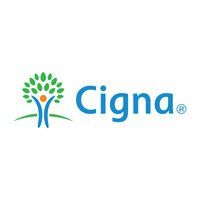Depression and Brain Fog: Is There A Connection? | Drug-Free Depression
This is a subtitle for your new post

Do you ever find yourself stuck in a mental haze? Is it difficult to concentrate or remember things? Has making simple decisions, like what to make for dinner…or which shampoo to buy, become so overwhelming?
If so, you are not alone.
We make thousands (yes, thousands) of daily decisions, and some are easier than others. However, since depression affects your mind and body, it's common for people with depression to experience the phenomenon known as brain fog.
Even though brain fog can be a symptom of aging or dementia, many people don’t realize it is also a common symptom of depression. Just as the name suggests, brain fog is a lack of clarity and focus that impacts your mind and how you think. In other words, it feels like total emotional fatigue and burnout.
You might feel scatterbrained, fuzzy, and unfocused. This lingering fog can impact your focus and slowly start to interfere with your quality of life.
While the exact mechanisms behind brain fog are still under review, researchers have identified several factors that can contribute to this state of mental cloudiness.
Neurotransmitter Imbalance
Depression is often associated with neurotransmitter imbalances in serotonin and dopamine. These chemicals play crucial roles in regulating mood and influence cognitive functions. An imbalance can lead to difficulties in concentration and memory.
Inflammation
Chronic inflammation has been linked to both depression and cognitive dysfunction. When your body's immune response is activated for an extended period, it can affect brain function and contribute to brain fog.
Stress and Cortisol
High stress levels and the release of cortisol, the body's stress hormone, can impair memory and cognitive function. In depression, chronic stress is a common companion, further exacerbating brain fog.
Now let’s talk about inflammation…because it also has A LOT to do with depression.
Many studies highlight the role inflammation plays in depression and fatigue. Inflammation, stress, and other factors can disrupt the brain's dopamine system, significantly impacting mood and clarity.
Other studies show that cognitive impairment occurs in most clinical cases of depression (approximately 85-94%). So, suppose we combine these two pieces of information. We understand that inflammation is one cause of depression, and most people who suffer from depression also experience brain fog.
Now we’re looking at 264 million people worldwide who are impacted by depression and brain fog- you really aren’t alone!

Reduce inflammation, overcome brain fog, and regain mental clarity.
Sometimes, small changes in your lifestyle and daily habits can make a BIG difference in the way you feel. It’s important to remember that what you eat plays a significant role in inflammation…which can trigger depression…and affect your mental clarity. Here are some tips to break this vicious cycle!
Embrace An Anti-inflammatory Diet
You really can eat your veggies to beat your blues! Think colorful, leafy greens, broccoli, and sweet potatoes. They're packed with antioxidants that help combat inflammation. Be sure to incorporate avocados, nuts, and fatty fish like salmon that are rich in omega-3 fatty acids. All of these foods are known for their anti-inflammatory powers.
Move A Little Each Day
Exercise isn't just for sculpting beach bodies. It's also a fantastic way to reduce inflammation and boost your mood. Regular physical activity helps release endorphins-those feel-good hormones- and reduces chronic inflammation.
Remember the importance of staying hydrated! Water is essential for overall health, and it helps flush out toxins that can contribute to inflammation. The U.S. National Academies of Sciences, Engineering, and Medicine determined that an adequate daily fluid intake is:
• About 15.5 cups (3.7 liters) of fluids a day for men
• About 11.5 cups (2.7 liters) of fluids a day for women
Skip Fad Diets. Opt For Lifestyle Changes
If you are looking for life-changing results, then you really have to change your life. Small things like improving sleep and reducing sugar can help boost your mood and beat brain fog. If cutting sugar is difficult for you, start small and add on. Look for natural sweeteners like honey or maple syrup when needed, and replace your sugary breakfast cereal with a bowl of yogurt - baby steps count!
Never underestimate the power of a good night’s sleep! Quality sleep can transform your day, improving your mood, boosting positivity, and helping you tackle challenges with a fresh perspective. Experts recommend getting 7-9 hours of quality shut-eye. Poor sleep habits can lead to inflammation and contribute to brain fog.
Medications and therapy don't work for a third of individuals suffering from depression. We have solutions that do.

Sometimes, the symptoms of a disorder like depression make it so much more unbearable. Depression, brain fog, inflammation, memory loss, and lack of focus are NOT symptoms you have to live with. At the North Carolina Institute of Advanced NeuroHealth, we offer new avenues of hope and healing.
We’re here to walk with you from diagnosis to treatment. Our practice is unique because we offer innovative solutions that go beyond medication and therapy.
IV Ketamine can repair the damage inflammation, brain fog, and depression do to the structures in your brain within hours! It is effective in about 70% of patients with treatment-resistant depression. It is fast-acting, and some people start feeling the benefits of ketamine within the first 24 hours of an initial dose. This fast action solidifies ketamine as a breakthrough treatment.
Why?
Traditional antidepressants can take two to four weeks while ketamine can take hours.
Looking For A Drug-Free Depression Treatment?
TMS Therapy offers a non-invasive, FDA-approved, depression treatment option that’s covered by insurance. This life-changing therapy uses gentle magnetic pulses to turn the areas of the brain impacted by depression “on” again.
Unlike antidepressants, TMS doesn't cause systemic side effects like brain fog, upset stomach, heartburn, sexual dysfunction, or other issues. No medications or anesthesia are required for TMS therapy.
Get The Relief You Deserve
Our innovative treatments can help lift the fog of depression and create better days ahead free from depression and brain fog. You don’t have to ‘push through’ the symptoms. Reach out to our compassionate team today to explore how these therapies might be your ticket to clarity and a brighter tomorrow.





















